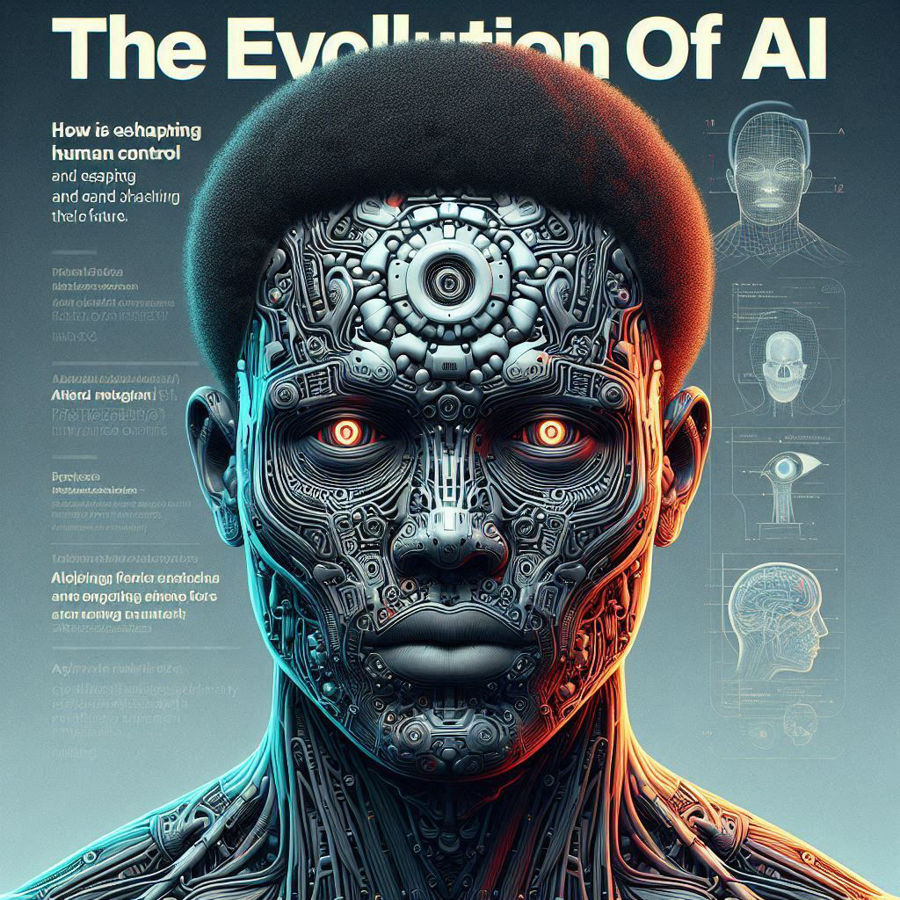
As Artificial Intelligence (AI) continues to evolve, it challenges traditional understandings of intelligence, creativity, and autonomy. With advanced machine learning models and neural networks achieving remarkable feats, such as playing complex games and diagnosing medical conditions, AI is becoming an indispensable part of modern life. However, as AI systems grow in sophistication, the question of human control becomes more urgent: How much of our cognitive load should be handed over to algorithms, and what happens when machines exceed human capabilities?
The Emergence of the Algorithmic Brain: Rethinking Intelligence
At the core of AI's potential lies the concept of the "algorithmic brain." These sophisticated systems replicate the brain's ability to process information, but at much faster rates. The underlying neural networks in AI allow these systems to learn from experience, continuously improving through exposure to data. In many fields, such as finance, healthcare, and logistics, AI now offers capabilities far beyond human limitations, providing solutions that are faster, more precise, and capable of processing larger data sets.
Despite AI's growing presence, it still operates within predefined boundaries. The algorithms driving AI are designed to tackle specific problems, allowing them to achieve extraordinary performance in certain areas. However, the larger question remains: can AI ever truly replicate human intelligence in its full capacity, or will it remain limited to specialized tasks?
AI's Superiority in Specialized Domains: A Double-Edged Sword
One of the most striking features of AI is its ability to outperform humans in highly specialized domains. In medical imaging, AI systems can analyze and interpret complex scans, such as MRIs and X-rays, with a degree of accuracy that exceeds human capabilities. Similarly, in industries like finance, AI algorithms process vast amounts of market data to identify patterns and make predictions, outperforming even experienced analysts.
This specialized superiority, while impressive, also presents challenges. AI systems are designed to excel in specific tasks but lack the flexibility and adaptability of human intelligence. For instance, while AI may excel in data analysis or prediction, it cannot replicate the breadth of human judgment or creativity across various contexts. This creates a paradox where AI is both a tool for enhancing human capabilities and a potential threat to traditional human roles in various professions.
The Question of Autonomy: Who Controls the Machines?
As AI systems grow in sophistication, their ability to operate autonomously becomes a growing concern. From self-driving cars to autonomous drones, AI is already making real-time decisions without human intervention. While these innovations promise to improve efficiency and safety, they also raise critical questions about accountability. What happens if an AI system makes an incorrect decision? Who is responsible for the consequences?
The shift toward more autonomous systems challenges traditional notions of control. In fields like healthcare and defense, where AI is being used to make life-and-death decisions, the stakes are even higher. Ensuring that AI remains accountable to human oversight is critical to preventing unintended consequences. The potential for AI systems to operate beyond human control necessitates new frameworks for regulation, ethics, and governance to ensure that these technologies align with societal values.
A Vision for the Future: Human-AI Synergy
While the rise of AI presents challenges, it also holds immense potential for collaboration between humans and machines. By leveraging AI as a tool that complements human intelligence, we can enhance decision-making, improve productivity, and solve complex global challenges. For instance, in healthcare, AI can help doctors diagnose diseases more quickly and accurately, while human expertise remains essential in interpreting results and making final decisions.
The key to successful human-AI collaboration lies in ensuring that AI remains a tool that supports human decision-making rather than replacing it entirely. As AI continues to evolve, the future will likely see increased collaboration between humans and intelligent systems, where both work together to achieve goals that neither could accomplish alone. This synergy could revolutionize fields such as education, scientific research, and environmental sustainability.
Conclusion: Shaping the Future of AI with Ethical Considerations
As AI continues to advance, it is crucial to ensure that its development aligns with ethical principles and human values. Responsible AI governance is necessary to address concerns about autonomy, accountability, and fairness. By establishing clear guidelines and promoting transparency, we can harness the power of AI to create a future where machines enhance human life rather than threatening it.
The future of AI holds exciting possibilities, but it is up to us to shape how these technologies evolve and integrate into society. By embracing both the potential and the challenges of AI, we can create a world where human intelligence and machine intelligence work together to tackle the complex issues of tomorrow.
For tailored advice and insights into Abu Dhabi’s real estate opportunities, consider consulting A Land or exploring the latest property articles on A Land Blog or A Land News. You can also read the original article that inspired this post here through this link.
